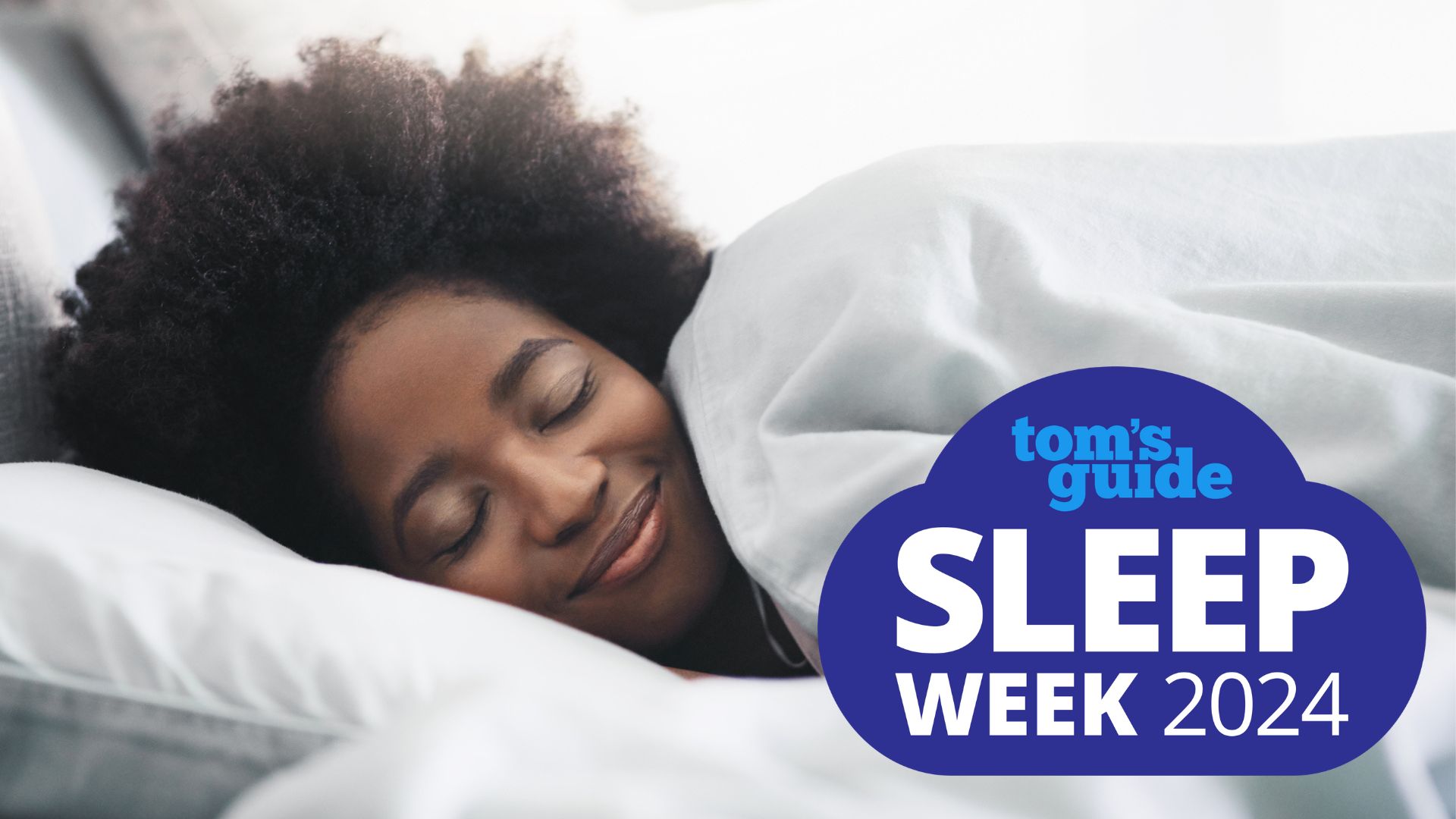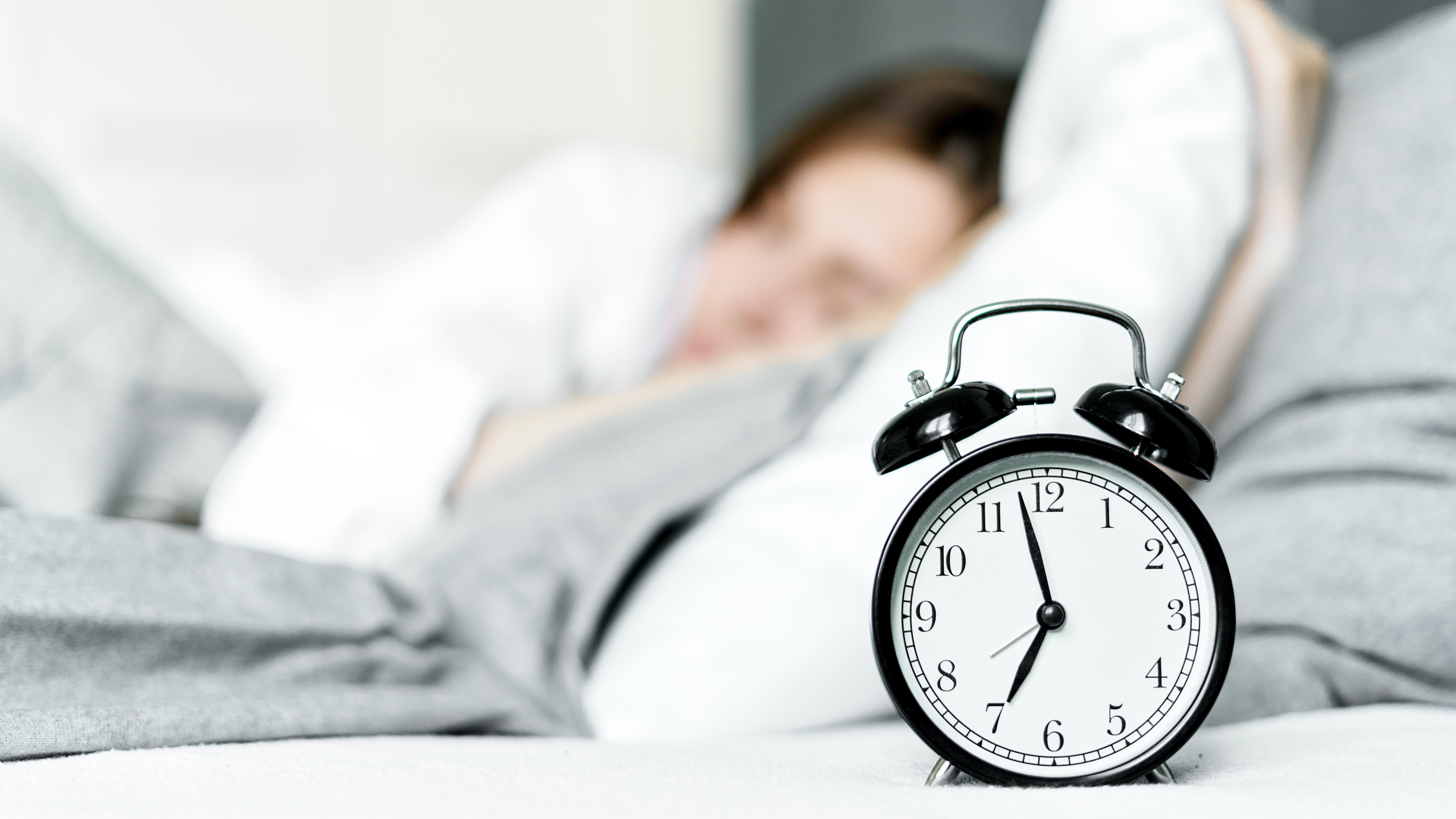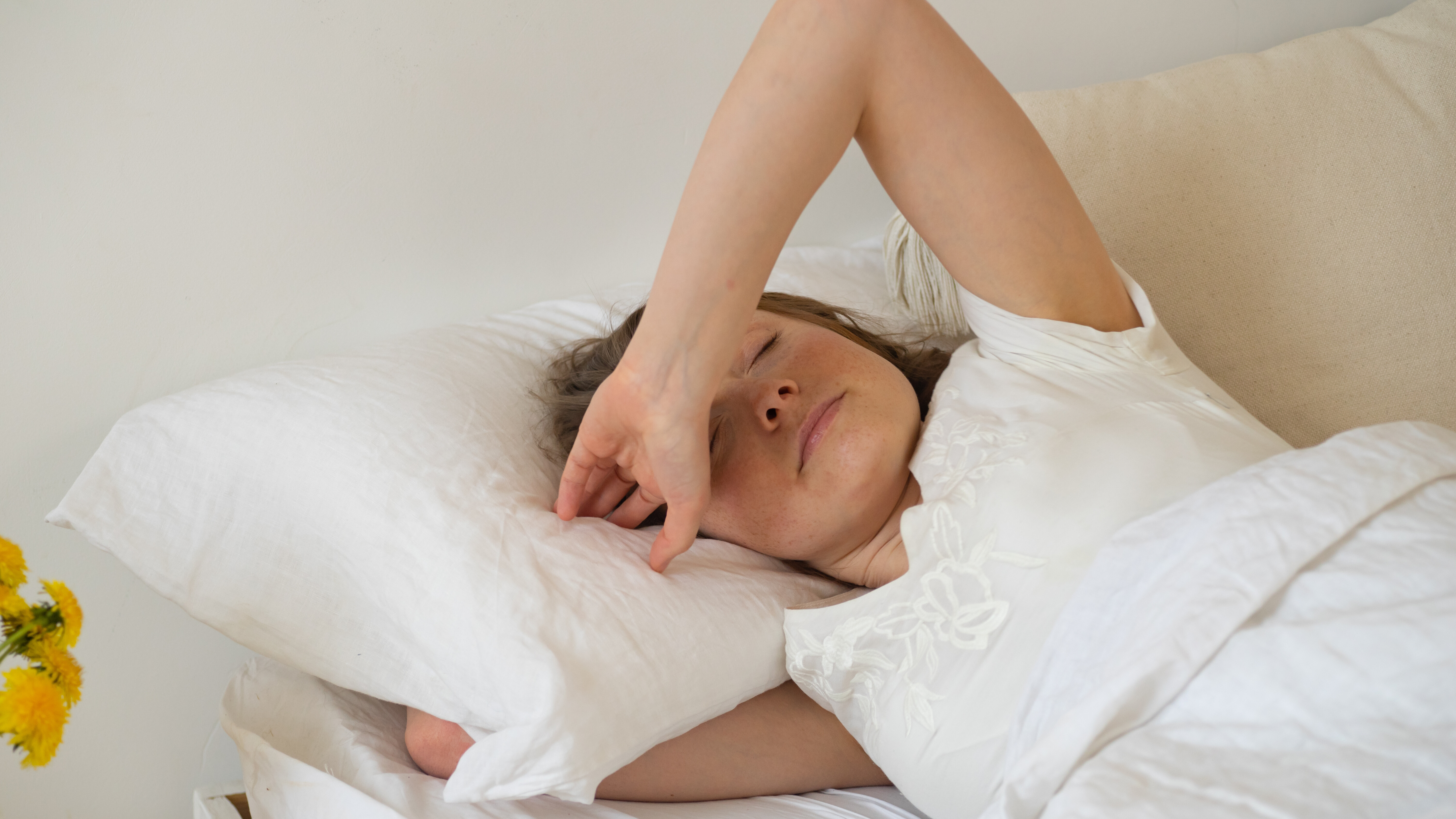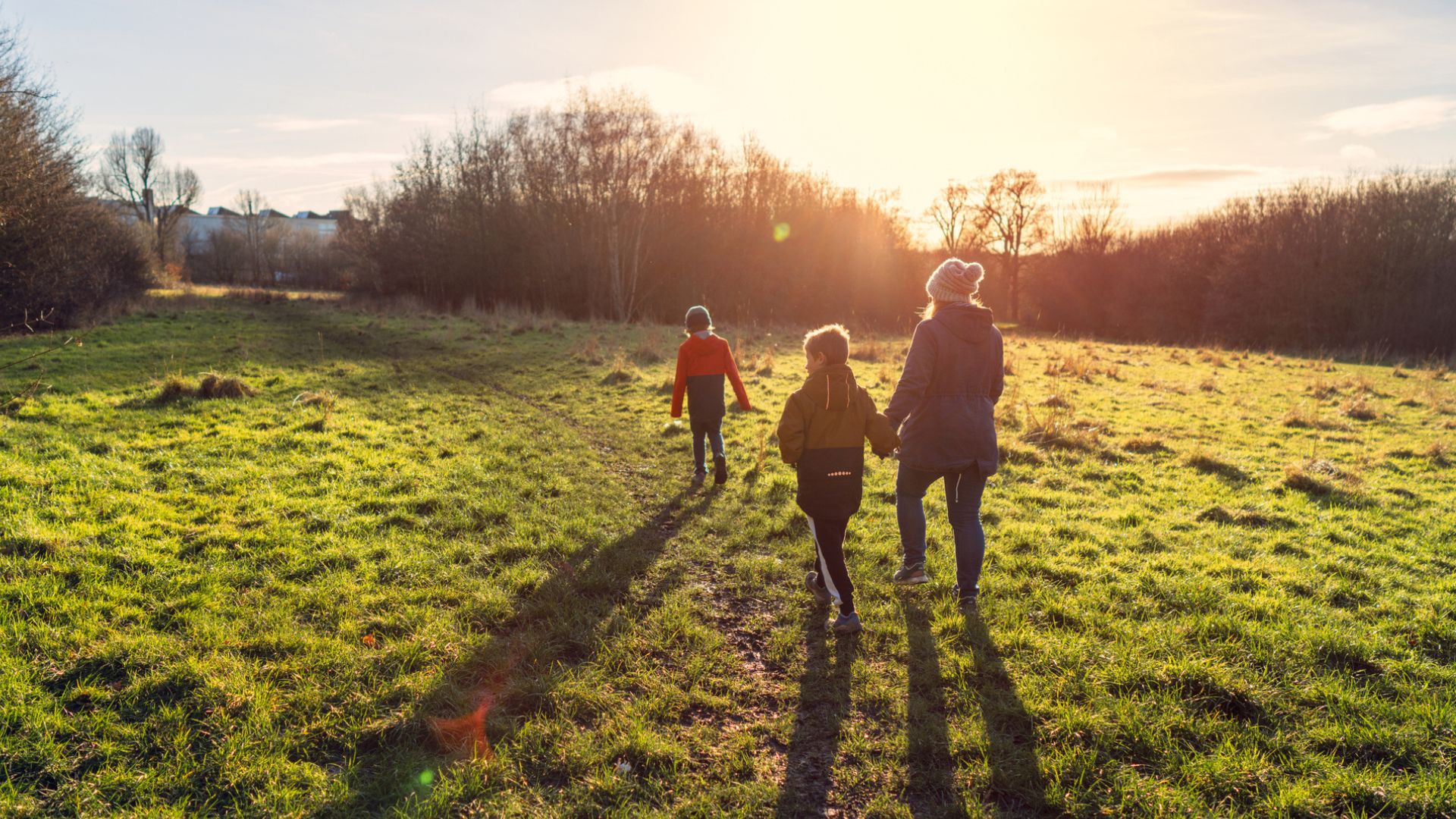What is melatonin and why is it so important for your sleep?
Plus five ways to naturally boost your melatonin levels

Melatonin is responsible for making us feel tired in the run up to bed time, but what exactly is it why is melatonin so important for sleep? Melatonin is a naturally occurring hormone produced by a gland in the brain, signalling to your body that you need to rest and recharge (sleep).
Your body makes as much melatonin as you need, but certain lifestyle habits can negatively impact your melatonin levels, making it harder for you to sleep. Positive lifestyle changes, such as ditching tech an hour before bed (or switching to Night Mode) and investing in the very best mattress for your body and sleep needs, can make it easier to fall asleep faster. But melatonin remains crucial to your overall sleep health.
For Sleep Awareness Week 2024, we ask two health experts to explain why melatonin is so important for sleep, plus five ways to naturally boost melatonin levels with your diet and lifestyle habits.
Nectar Mattress: from $349 at Nectar Sleep
During Sleep Awareness Week, you can save up to 40% on a range of Nectar mattresses. We rate the Original Nectar as the best memory foam mattress for most sleepers seeking a supportive yet gently contouring bed to reduce aches and pains during sleep. A queen is on sale for $649, and you'll get a year's sleep trial and lifetime warranty too.
What is melatonin?
Melatonin is a naturally occurring hormone and produced via the pineal gland in the brain. High levels of melatonin help us feel tired at night. They gradually start to deplete as night turns to day, helping us to feel alert upon waking.
You may have heard of the sleep-wake cycle, also known as the circadian rhythm – your 'internal alarm clock' which signals to the body when it's time to sleep and when it's time to wake up. Melatonin allows your circadian rhythm to perform at its best, depending on whether your melatonin levels are high or low.
Why is melatonin important for sleep?
Ever fallen asleep while watching a movie after a hard day at work? That could be because your melatonin levels are high. This hormone is very important for the wake/sleep cycle, but it needs to be at the right level for you to feel sleepy. Melatonin levels should begin to rise around two hours before bed.
Dysregulated melatonin can lead to daytime sleepiness and an inability to sleep at night
Dr Menka Gupta
Dr. Chelsie Rohrscheib, Head Sleep Expert and neuroscientist at sleep tech company Wesper explains: “Melatonin helps the brain keep track of time, especially what time of day to be awake and asleep. When melatonin levels are low, the brain maintains wakefulness and alertness.
Get instant access to breaking news, the hottest reviews, great deals and helpful tips.
"When melatonin levels are high, the brain can initiate and maintain sleep. People with suppressed melatonin may find it difficult to achieve high-quality sleep at night.”

If the hormone is working to its best ability, it's just about as predictable as humans can be. “The brain's melatonin production exists on a predictable schedule, which means you'll feel inclined to go to bed around the same time every night,” says Dr Rohrscheib.
So, what happens when your wake/sleep cycle gets disrupted? Dr Menka Gupta, sleep expert and functional medicine doctor at NutraNourish explains: “Normally, cortisol peaks in the morning with light and melatonin rises at night with darkness to establish the circadian rhythm. Dysregulated melatonin can lead to daytime sleepiness and an inability to sleep at night.”
Melatonin offers several other benefits, Gupta explains, such as “immune modulation, oxidative support and gut-healing properties. Lower levels of melatonin can cause inflammation and gut issues as well.”
Should you take melatonin gummies?
In the US, melatonin supplements can be bought over the counter and help to mimic the effect of natural melatonin levels in the body. However, if they are taken too often you can suffer from side effects.
Melatonin should be taken at low doses and not exceeding 5mg per night unless directed by your doctor
Dr. Chelsie Rohrscheib
One 2018 study from Harvard Medical School reported on there’s been an increase in people taking the supplement, which could be down to sleep problems such as insomnia or even jet lag.

“Melatonin supplements may help you sleep better if you're struggling with short-term sleep issues or you need to travel out of your time zone,” explains Dr Rohrscheib, but warns: “Melatonin should be taken at low doses and not exceeding 5mg per night unless directed by your doctor - higher doses can make sleep quality worse.”
It's important to keep in mind that melatonin supplements shouldn't be used as a quick-fix sleep aid, and certainly not as a long term solution to sleep disorders, says Dr Rohrscheib. If taken in the wrong dose, melatonin can cause dizziness, headaches and anxiety.
5 ways to increase melatonin naturally
1. Destress before bed
“Chronic stress disrupts melatonin production by elevating cortisol levels, disturbing circadian rhythms, and through sympathetic nervous system dominance,” explains Dr Gupta.
So, if you’ve had a stressful day or week, how can you reduce stress and boost melatonin levels? “Practicing stress-reducing techniques like mindfulness, deep breathing, or adaptogenic herbs to restore hormonal balance helps with melatonin production.”
2. Reduce your sugar levels
We all now know more about the connection between the gut and the brain, and Dr Gupta says that an imbalance in gut bacteria, inflammation, or gastrointestinal disorders may also disrupt melatonin production.“The enterochromaffin cells in the gut produce 400 times more melatonin than the pineal gland.”
Maintaining blood sugar levels by avoiding excessive sugar and refined carbohydrates could also be important: “Stable blood sugar is important for maintaining a consistent sleep-wake cycle and helps with melatonin release.”
3. Eat a melatonin rich diet
Some foods can also help you to sleep well: “Include foods rich in melatonin precursors, such as tart cherries, grapes, tomatoes, walnuts, citrus fruits, and bananas in your diet,” explains Dr Gupta.
While she also advises taking supplements like magnesium, L-Theanine, valerian root, 5-HTP, GABA (Gamma-Aminobutyric Acid) and chamomile.

4. Increase sunlight exposure
If you never see daylight your body is unlikely to produce adequate levels of melatonin. “Morning sunlight exposure has been very beneficial for my clients in positively impacting circadian rhythms and melatonin production in the evening,” says Dr Gupta.
A simple lunchtime walk can help to rectify this, while if you can exercise outside within 30 minutes of waking when the sun is up - you’ll start to reap the benefits when you sleep.
5. Cut down on pre-bed screen time
If you regularly find yourself scrolling until the early hours your phone could be at fault. Too much blue light, which comes from phones, tablet and laptops, disrupts your circadian rhythm.
“When it's dark at night, the brain increases melatonin production to help us get ready to sleep. Getting plenty of natural sunlight during the day, and avoiding lights, especially from electronic devices at night, can naturally boost our melatonin production,” explains Dr Rohrscheib.

Sarah is a freelance writer who has been published across titles including Woman & Home, The Independent, and the BBC. Sarah covers a variety of subjects, including health and wellness. For Tom's Guide Sarah often writes about sleep health and hygiene, and interviews leading sleep experts about common issues such as insomnia and sleep deprivation.
 Club Benefits
Club Benefits











